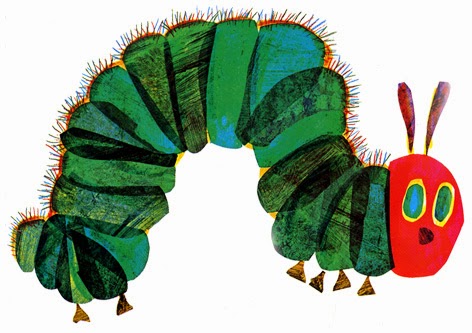Munch munch munch… Someday I will be a beautiful butterfly!
This is Sandra Tsing Loh with the Loh Down on Science.
Caterpillars spend their days busily feasting, turning carbon-rich leaves into nitrogen-rich poo. This means less falling leaves and more caterpillar poop washing into nearby lakes. This can change the balance of carbon and nitrogen in the water. Is it just a drop in the bucket – or does it make a real difference?
Enter Samuel Woodman at the University of Cambridge and team. They analyzed thirty years of Canadian government surveys. These included information about insect outbreaks and the water chemistry of over ten lakes.
Results? Insect outbreaks occur at least every five years. These outbreaks resulted in about twenty percent LESS carbon in lake waters. But they also found more than TWICE as much nitrogen! And after an outbreak, the lake chemistry never quite bounced back!
The researchers think these tiny critters may contribute to climate change by decreasing the amount of carbon a lake maintains.
Here’s hoping MY munchies just contribute to my waistline and not my (big fat) carbon footprint!
Reference: Woodman, S. G., Khoury, S., Fournier, R. E., Emilson, E. J. S., Gunn, J. M., Rusak, J. A., & Tanentzap, A. J. (2021). Forest defoliator outbreaks alter nutrient cycling in northern waters. Nature Communications, 12(1). https://doi.org/10.1038/s41467-021-26666-1

